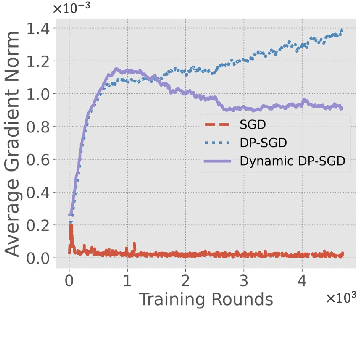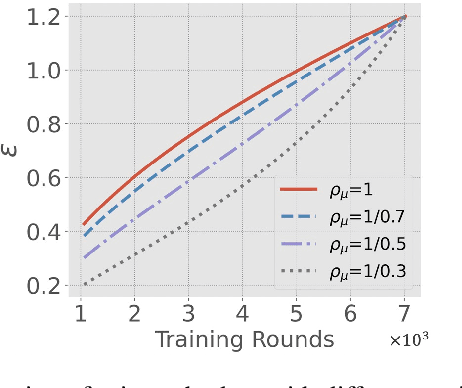Dynamic Differential-Privacy Preserving SGD
Paper and Code
Nov 15, 2021



Differentially-Private Stochastic Gradient Descent (DP-SGD) prevents training-data privacy breaches by adding noise to the clipped gradient during SGD training to satisfy the differential privacy (DP) definition. On the other hand, the same clipping operation and additive noise across training steps results in unstable updates and even a ramp-up period, which significantly reduces the model's accuracy. In this paper, we extend the Gaussian DP central limit theorem to calibrate the clipping value and the noise power for each individual step separately. We, therefore, are able to propose the dynamic DP-SGD, which has a lower privacy cost than the DP-SGD during updates until they achieve the same target privacy budget at a target number of updates. Dynamic DP-SGD, in particular, improves model accuracy without sacrificing privacy by gradually lowering both clipping value and noise power while adhering to a total privacy budget constraint. Extensive experiments on a variety of deep learning tasks, including image classification, natural language processing, and federated learning, show that the proposed dynamic DP-SGD algorithm stabilizes updates and, as a result, significantly improves model accuracy in the strong privacy protection region when compared to DP-SGD.
 Add to Chrome
Add to Chrome Add to Firefox
Add to Firefox Add to Edge
Add to Edge